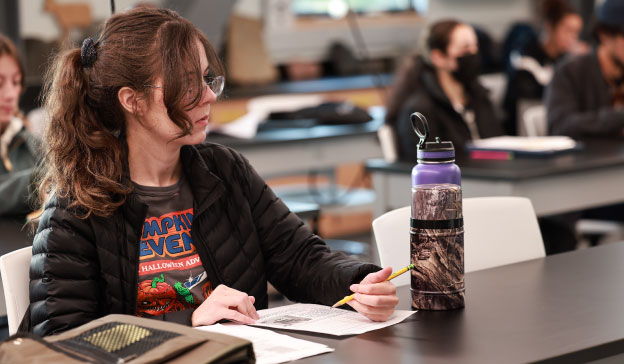Anthropology and Archaeology
Anthropology and Archaeology
Study humankind from a multicultural perspective and earn an associate’s degree in cultural anthropology, archaeology or biological anthropology. Transfer to a four-year college to pursue a range of careers.

There are three core courses in anthropology, each an introduction to one of the subfields:
- Cultural Anthropology (ANTH& 206)
- Archaeology (ANTH& 204)
- Biological Anthropology (ANTH& 205)
All anthropology majors will take those three courses as part of their transfer pathway. The anthropology program offers a variety of additional courses in these subfields. The other courses that anthropology majors take in their pathway will depend in part on their main subfield focus and other interests and in part on the requirements of the transfer institution. Anthropology majors need to work closely with their anthropology faculty advisor to develop their education plans.
Career Pathway Course Maps
Launch your future at Pierce College. Apply now to get started
Careers in Anthropology and Archeology
While anyone working with people will benefit from a background in anthropology, anthropology majors have many career options. Some anthropologists engage in research and teaching to contribute to our understanding of humans as a whole; others work in applied fields using their skills and knowledge to make a positive difference in our world.
Anthropologists are everywhere! They work in a wide variety of places; they have careers in academic, nonprofit and community-based, corporate and business, and government sectors. Among the many career possibilities open to anthropologists:
- Cultural anthropologists study the beliefs, traditions, and everyday lives of peoples all over the world, work with government or NGO projects, advocate for human rights and social justice, or develop programs to help provide key services to isolated communities.
- Archaeologists excavate the sites of ancient societies, analyze archaeological materials in a laboratory, manage collections in a museum, or work with the government to make decisions about managing and preserving our nation’s historical and archaeological resources.
- Biological anthropologists investigate biological diversity among modern human populations, excavate and analyze fossils of early human ancestors, study the everyday lives of chimpanzees in the wild, or analyze human skeletal remains to help solve crimes.
These are just a small sampling of the many varied careers open to anthropologists. To learn more about careers in anthropology and archaeology, visit The Captivating and Curious Careers of Anthropology.
To explore cultural anthropology, archaeology, or biological anthropology as a major, meet with one of the Pierce College anthropology professors.
Transfer Institutions
Kathryn Keith
Anthropology Professor
KKeith@pierce.ctc.edu
253-840-8363
Get Started at Pierce College in Five Easy Steps
With an education from Pierce College, your possibilities are limitless. Take the first step toward your future today.
Explore Your Funding Options
Going to college is within reach, we can show you how! The most important step to paying for college is to apply for financial aid through the FAFSA or WASFA. Discover scholarship opportunities, and learn about payment options.
Our Community
Not all learning happens in the classroom. When you're looking to take a break from the books, the Office of Student Life offers opportunities to grow and find community at Pierce College. Represent your fellow students on the student leadership team or join the staff of our award-winning student newspaper, The Pinnacle. Squeeze in a workout between classes at our on-campus Health Education Centers — membership is free for students!